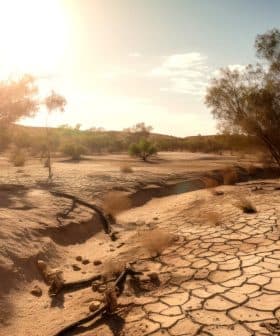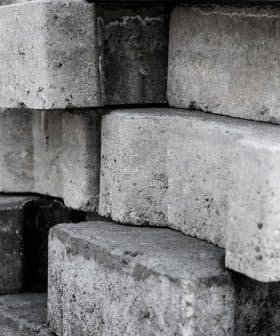Chile’s Ongoing Drought Leads to Water Rationing in Santiago
Chile is facing an unprecedented drought, leading authorities in the Santiago metropolitan region to implement a 12-month water rationing plan affecting almost all districts of the capital city and its six million residents. The severity of the drought has prompted the government to announce new funds for farmers affected by the crisis, with experts attributing the water scarcity to a combination of factors including lack of rainfall and control of water infrastructure by large companies.
The unprecedented severity of a major drought plaguing Chile has resulted in exceptional coping measures.
As the drought enters its 13th year, authorities in the Santiago metropolitan region have announced a water rationing plan that will last at least 12 months and will involve almost all districts of the capital city and its six million residents.
This is the first time in history that Santiago has a water rationing plan due to the severity of climate change. It’s important for citizens to understand that climate change is here to stay. It’s not just global, it’s local.
The extraordinary measures come on the heels of the new government funds announced in recent weeks for farmers in central Chile whose activity is profoundly affected by the prolonged drought.
“A city can’t live without water,” Claudio Orrego, the governor of the province, said in a press conference. “And we’re in an unprecedented situation in Santiago’s 491-year history. We have to prepare as there might be not enough water for everyone who lives here.”
See Also:Time Running Out to Prevent Worst Impacts of Climate Change, U.N. SaysMost of the problems for the city come from the significant and progressive drop in the water capacity of two rivers, the Maipo and Mapocho. Together, they represent the major water supply for Santiago and the deployment of the new measures will depend on their water levels.
Four degrees of severity will cover procedures ranging from initial prioritizing actions for city water reserves to warnings to the population as well as the possible reduction of available water pressure.
The highest level of alert signifies water rationing for the population, with rotating turns among districts for water cuts that should not last more than 24 hours at a time. The emergency reserves will be used for special entities such as health services.
Local authorities emphasized how the country has lost 10 to 37 percent of its water availability in the last 30 years and another 50 percent drop is expected in northern and central Chile within the next four decades.
“This is the first time in history that Santiago has a water rationing plan due to the severity of climate change,” Orrego said. “It’s important for citizens to understand that climate change is here to stay. It’s not just global, it’s local.”
Orrego has also warned that “the water revolution we are now talking about involves changes to be adopted throughout all sectors, including agriculture, industrial production and the government itself.”
See Also:Water Scarcity is the Biggest Challenge Facing Food ProductionAt the end of March, Minister of Agriculture Esteban Valenzuela had renewed an emergency decree that will financially support the rural communities and farmers in central Chile who are coping with the worst effects of the lasting drought. The intervention will last three more months.
In the affected locations, many municipalities have been building water ponds to collect eventual rainfall and reserves are being used to feed animals in smaller farms.
According to the Meteorologic National Direction (DMC), 2021 was the driest year since measurements began, with an average of 50 percent less rainfall in many regions.
Local experts believe that lack of rainfall is just one of the causes of the worsening phenomenon, as one of the larger problems is believed to be the private property of the water systems.
Large farming, mining and energy companies control most of the water infrastructure as stated by a 1981 law enacted by the government of the former dictator, Augusto Pinochet.
Given the dire situation in many regions, the minister has also confirmed that the government is studying the possibility of declaring a state of national disaster, which would allow it to deploy even more significant measures over a large area of the country. Many regions and districts have asked the government not to delay such a measure.









